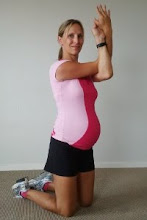This instead is an article to let you know that what you may find
quite shocking and worrying losing your hair post pregnancy is absolutely normal. I have
included in this blog the things I have done this time to try to reduce post pregnancy hair loss.
Even though I had seen it happen to my clients I was horrified the first time I noticed I had bald spots 5 months post the birth of my first daughter and that I had receded- argh! I can’t actually remember losing it first time but second time around I was prepared although it was still up-setting all the same.
Yes I know I have gorgeous children and I'm truly grateful but losing your hair can be really hard to deal with.
Even though I had seen it happen to my clients I was horrified the first time I noticed I had bald spots 5 months post the birth of my first daughter and that I had receded- argh! I can’t actually remember losing it first time but second time around I was prepared although it was still up-setting all the same.
Yes I know I have gorgeous children and I'm truly grateful but losing your hair can be really hard to deal with.
 4 months post the birth of my second daughter Brooke
the big fall out started, my brush was full of hair, my partner was complaining there was
hair everywhere, and when I would blow- dry it you could see it falling out. I
once caught my hair in a bag strap, I lifted my hair out from under the strap and
half of it came out and was left on my jumper! Seems strange too I mean genetically and from a safety point of view why would this happen as your baby becomes littered with hair.
4 months post the birth of my second daughter Brooke
the big fall out started, my brush was full of hair, my partner was complaining there was
hair everywhere, and when I would blow- dry it you could see it falling out. I
once caught my hair in a bag strap, I lifted my hair out from under the strap and
half of it came out and was left on my jumper! Seems strange too I mean genetically and from a safety point of view why would this happen as your baby becomes littered with hair.
I searched on –line for answers but I knew there was no way
to stop it. Can you imagine, most of the articles said try not to stress? Try not
to stress, what when you can see yourself going bald erm yes that’s a tough one!
It can take around 2-3 years for your hair to recover from
the post pregnancy hair loss. You lose minimum if any hair loss during a
pregnancy hence why your hair looks so dam good. Then post pregnancy you lose
it. For those very lucky women with thick hair they may not even notice or
be glad of the natural thinning but for those of us with thin hair it can look absolutely
awful and it takes time getting used to. My base-ball hat becomes my friend and I change the side of my parting.
Pregnancy hormones are to blame and you lose your hair
regardless if you breast-feed or not. Hair loss normally happens around 4-6 months post although everyone is different. So if you start seeing mounds of
your hair falling out this is what I have tried third time around to try to reduce and help
healthy hair grow back. I have found the extreme loss continues for approx 3-5 weeks.
- Avoid washing your hair regularly- the weight of the water pulls more out
- Avoid brushing too much and use a wide tooth comb when you do
- Get a cut around the 3 month mark as medium length hair has less chance of getting caught in bag straps and under clothes.
- Tie your hair up loosely at night to avoid it being pulled on the pillow
- I have used a caffeine hair serum this time to stimulate new growth. I have yet to see if this really works.
-
Finally try not to worry, it is normal. Part your hair on
the other side if it covers loss and by the time your baby is 2 your hair will
be back to normal!
If you have any other tips to share on this subject please comment and help
other readers going through this one downside for me anyway to pregnancy.



The good thing about this however is that hair loss is not permanent, and will resolve as soon as your hormones settle down. This often lasts for 6-12 months at most, but it peaks around the third and fourth months. However, if your still experience hair loss after these period, then you better consult your doctor. :)
ReplyDeleteDr Andrew Kim
Australian Institute of Hair Restoration
Thanks for your comment Andrew
ReplyDeleteMy hair loss started after my delivery and has continued for nearly 5 years now. My hair has become very thin and limp. So I am planning to undergo a hair transplantation treatment for it. Hope I will benefit from it ;-).
ReplyDeleteHair loss is normal when during pregnancy but there are more factor that cause hair loss it could be genetics, stress, menopausal
ReplyDelete